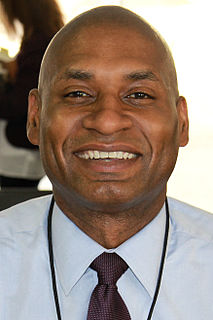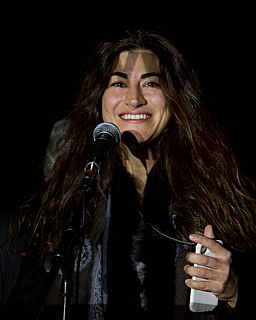A Quote by Gary Johnson
I'd like to think I would have signed the Civil Rights bill and wouldn't have had any issues with it.
Related Quotes
They came up with a civil rights bill in 1964, supposedly to solve our problem, and after the bill was signed, three civil rights workers were murdered in cold blood. And the FBI head, Hoover, admits that they know who did it, they've known ever since it happened, and they've done nothing about it. Civil rights bill down the drain.
Liberals say this over and over and over again to hide the actual history, which is why I go through the specifics on the big segregationists in the United States Senate, the ones who signed the Southern Manifesto and the ones who voted against the 1964 Civil Rights Act. There's a panoply of issues to consider. The first time they objected to the Federal government doing something was when it came to civil rights legislation. This is in stark contrast to the very few Republicans who voted against the '64 Civil Rights Act.
The Civil Rights Act of 1964 was the most sweeping civil rights legislation of its day, and included women's rights as part of its reforms. Ironically, the section on women's rights was added by a senator from Virginia who opposed the whole thing and was said to be sure that if he stuck something about womens' rights into it, it would never pass. The bill passed anyway, though, much to the chagrin of a certain wiener from Virginia.
You don't know who the next group is that's unpopular. The Bill of Rights isn't for the prom queen. The bill of rights isn't for the high school quarterback. The Bill of Rights is for the least among us. The Bill of Rights is for minorities. The Bill of Rights is for those who have minority opinions.
There's no point going to a country which is torturing people to ask them to stop if they can point out that the United States is doing it too. It enormously weakens the argument. Back in the early days of the Bush administration, PEN made a decision that we would try and make human rights issues and civil rights issues in this country part of the priority, and not just international issues, which had more or less been the priority up until then.
Civil libertarian activists are found overwhelmingly on the left. Their right-wing brethren have been concerned with issues more important than civil rights, voting rights, abuses by police and the military, and the subordination of politics to religion - issues like the campaign to expand human freedom by turning highways over to toll-extracting private corporations and the crusade to funnel money from Social Security to Wall Street brokerage firms.
In the South, prior to the Civil Rights movement and the 1964 Civil Rights Act, democracy was the rule. The majority of people were white, and the white majority had little or no respect for any rights which the black minority had relative to property, or even to their own lives. The majority - the mob and occasionally the lynch mob - ruled.
The Democrats co-opted the credit for the Civil Rights Act of 1964. But if you go back and look at the history, a larger percentage of Republicans voted for that than did Democrats. But a Democrat president signed it, so they co-opted credit for having passed the Civil Rights Act of 1964 and the Voting Rights Act of 1965.
The Obama years will be remembered as a cultural - and legal - tipping point for equality for all people who do not identify as strictly heterosexual, arguably the civil rights movement of our times. The president signed the bill repealing 'don't ask, don't tell.' The Defense of Marriage Act was struck down by the Supreme Court.


































